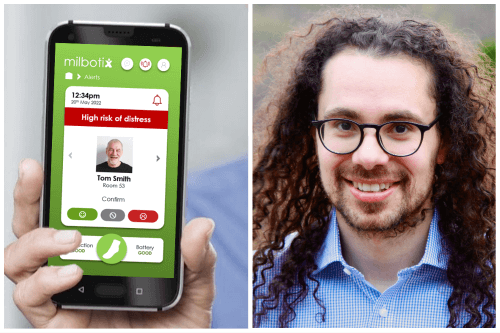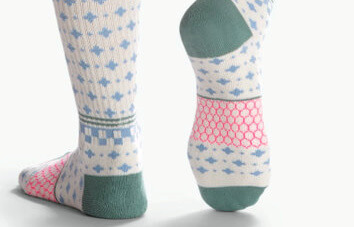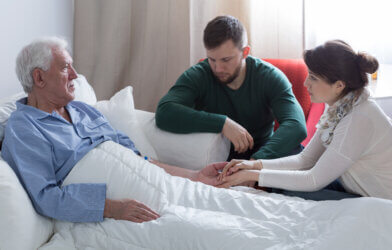New “smart socks” could help millions of people with dementia, autism and other conditions become less stressed and anxious.
Inventor Dr. Zeke Steer was so concerned when his great grandmother developed dementia that he quit his job as a software engineer and started a doctorate to find ways to make her life better. Once a gentle lover of jazz music, great gran Kath ended up agitated and aggressive as she became more muddled.
She even accused her own daughter of stealing from her.
Steer turned his life upside down and began studying so he could help people like Kath. He volunteered at a care home while studying for the prestigious graduate degree at the United Kingdom’s Bristol Robotics Laboratory, which is jointly run by the University of Bristol and the University of the West of England.
While volunteering, he hit on the idea of Milbotix, and launched the socks as a business in February 2020. The smart socks sense rising distress in people with dementia, autism and other conditions that affect communication, so their carers can intervene before things take a turn for the worse.
They track heart rate, sweat levels and motion so the wearer’s wellbeing can be understood. Steer says they look and feel like normal socks, do not need charging and can be washed in a machine.
Having an early warning means caregivers can hold, touch, provide pain relief for or just be with someone who is becoming anxious and help them feel better. The caregivers simply use an app to pick up a steady stream of data which is fed through from the footwear.
Existing alternatives to the smart socks are worn on wrist straps, which Dr. Steer says can stigmatize people and even leave them even more stressed.
“I came to see that my great grandmother wasn’t an isolated episode, and that distressed behaviors are very common,” he explains in a statement. “The foot is actually a great place to collect data about stress, and socks are a familiar piece of clothing that people wear every day. Our research shows that the socks can accurately recognize signs of stress – which could really help not just those with dementia and autism, but their carers too.”
Milbotix is now looking to work with innovative social care organizations to refine and evaluate the smart socks. Steer is testing the apparel on people living with mid to late-stage dementia and further developing the tech.

Steer hopes to bring his new product to market next year.
The company is currently a team of just three people, including Jacqui Arnold, who has been working with people living with dementia for 40 years.
“These socks could make such a difference,” she says. “Having that early indicator of someone’s stress levels rising could provide the early intervention they need to reduce their distress – be that touch, music, pain relief or simply having someone there with them.”
The Alzheimer’s Society in the United Kingdom is helping fund, test and support what they say is a “brilliant product.”
“Some people with dementia may present behaviors such as aggression, irritability and resistance to care,” says Natasha Howard-Murray, Senior Innovator at Alzheimer’s Society. “This innovative wearable tech is a fantastic, accessible way for staff to better monitor residents’ distress and agitation.”
Professor Judith Squires, Deputy Vice-Chancellor of the University of Bristol, said: “It is fantastic to see Zeke using the skills he learnt with us to improve the wellbeing of some of those most in need.
“The innovative research that Zeke has undertaken has the potential to help millions live better lives. We hope to see Milbotix flourish.”
One Brit is diagnosed with dementia every three minutes. Autism affects 700,000 UK citizens – about one percent of the population – and 15 to 30 percent of people with the condition are non-verbal some or all of the time.
The Alzheimer’s Society says 1.6 million people in the UK will be suffering from dementia by 2040.
Report by South West News Service writer Gwyn Wright












